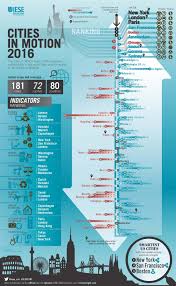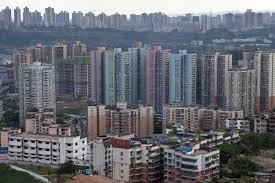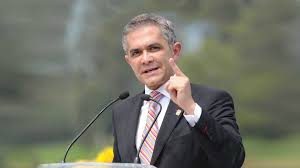 As the political situation in the United States goes from bad to worse and the Paris climate accord hangs in the balance, there is a ray of hope from some of the world’s most important cities including Madrid, Paris and Mexico D.F. As population rises people around the world are increasingly living in cities and this process, known as urbanization, is both a cause of concern as well as one of hope and expectation as it is more efficient, in terms of environmental sustainability, to provide goods, services, and quality of life to the mass of humanity in urban environments if they are done well.
As the political situation in the United States goes from bad to worse and the Paris climate accord hangs in the balance, there is a ray of hope from some of the world’s most important cities including Madrid, Paris and Mexico D.F. As population rises people around the world are increasingly living in cities and this process, known as urbanization, is both a cause of concern as well as one of hope and expectation as it is more efficient, in terms of environmental sustainability, to provide goods, services, and quality of life to the mass of humanity in urban environments if they are done well.
At IESE, Pascal Berrone and Joan Enric Ricart have done extensive work around the topic of Smart Cities which is all about using advanced technology from a variety of fields to make cities more livable, sustainable, and energy efficient. They publish an index called Cities in Motion every year and this year’s smartest city, according to the index, is New York! IESE also works with a Center devoted to the topic of developing Public Private Partnerships to improve the world’s cities.
Megacities

One of the trends is the issue of megacities or cities with a population of over 10 million people. When I was born in 1962, there were only three such cities i.e. New York, Tokyo and Mexico D.F. Today the list has dozens of entries and perhaps the largest city in the world is Chongqing, which is 1,440 kilometers from Shanghai and has a metropolitan area with a population of about 40 million souls.
The Mayors of such cities are dealing with issues such as air and water quality, sanitation, public transportation and a host of other topics. Sustainable Cities and Communities is the 11th of the United Nation’s Sustainable Development Goals and many cities are moving ahead with ambitious sustainability targets regardless of the political situation in their countries at the regional or national level.
C40 and the Diesel Engines
C40 is a network of the world’s megacities committed to addressing climate change and is supported by former New York Mayor Michael Bloomberg. C40 supports cities to collaborate effectively, share knowledge and drive meaningful, measurable and sustainable action on climate change.

80 of the world’s largest and most influential cities have now joined the 10 year old initiative and the group held its annual Mayor’s conference in Mexico D.F. at the end of 2016. Amongst a number of initiatives and resolutions the Mayor’s of Madrid, Paris and Mexico D.F. agreed to ban diesel engine cars by 2025 and to “do everything in our power to incentive the use of electric, hydrogen and hybrid vehicles to replace more polluting vehicles”. You can read the text of the ban here.
As discussed in a post a few weeks ago, while the overall carbon footprint of electric vehicles depends on the source of electrical power, they can be extremely effective in reducing local air pollution since any contamination happens at the power plant, not on the city streets. If power plants are located away from population centers, or at least on the other side of hills or mountains, then the impact on local air quality can be dramatic.
The good news is that whatever national politicians do or don’t do to help improve the environment, it seems that Mayors will do the right thing for the citizens of their cities.

